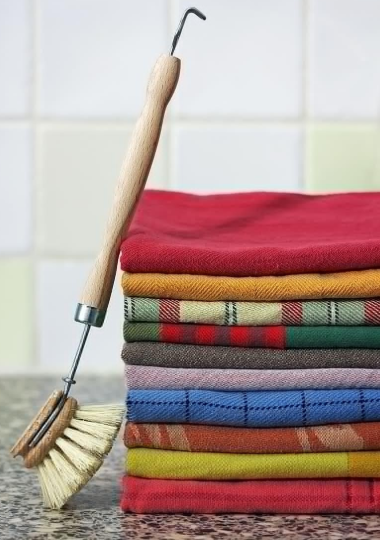This is a sponsored guest post.
Early last century, when having sparkling whites really did mean exactly that, housekeepers didn’t have a lot of chemical cleaners to hand. Instead they were forced to look for cleaning supplies which derived from nature – citrus fruit, vegetables, oils and astringents, even berries. But then, to be fair, nature was pretty good about it.

And yet today, ironically enough with all the recent news about climate change and the environment, many of us find ourselves looking to the past for solutions to our house cleaning dilemmas. Certainly, the last thing we want to be doing is putting toxic chemicals from cleaning solutions into our rivers, oceans and soil. And then, there is our own health to think about too – if chemicals are killing our fish and damaging our riverbanks, what are they doing to us?
Lastly, there is also all that plastic and non-recyclable packaging to feel guilty about too.
So, whether you clean your own home or use one of the many London home cleaning services currently available, you’re probably keen to learn about some of the best
natural house cleaning solutions out there. Not only that, but how to apply them. This quick guide will tell you exactly what you need to buy and how to use it to get results your great-great-great grandmother would have been proud of:
Natural cleaners and how to use them
Vinegar. An all-purpose cleaner which, when mixed with water and applied with newspaper, is a fantastic window cleaner. Use it to get smears off any type of glass in fact, such as wine glasses, vases or mirrors. Incidentally, vinegar is also terrific for adding shine to hair when added to the final rinse…
Lemon juice. Got stains on your tea and coffee cups? No problem! Simply mix the juice of a lemon with some sea salt (chunky salt for a better grip) and give the offending cups a good rub. This solution also works well for cleaning dirty pots and pans.
Vinegar & lemon juice. Filling a jar with lemon (or orange) peel, pouring white vinegar into it and leaving the solution to distil for a few days results in an excellent surface disinfectant. Simply strain the liquid into a spray container and get started…
Olive oil. Need to add a shine to furniture but are loathe to use a chemical spray? Then wipe the area with olive oil. Not only will it add sparkle, but it will also help shift stubborn grease marks and grime. At the same time adding the oil can prevent the wood from drying out.
Soap Nuts. As the name suggests, these berries, which can be bought in most health stores, are fantastic natural cleaners. Fill the washing machine, add water, and chuck the berries in (having shoved them into a small fabric bag). That’s because, when added to water they will produce Saponin – a foam that can tackle dirt and smells. The berries are produced by the Sapindus Mukorossi tree, which is actually part of the Lychee plant family. An impressive point about soap nuts is that the same berries can be used for several washes. Their shells are also biodegradable.
Baking soda. This kitchen staple plays a huge part in many natural cleaning recipes. For this particular one we’re using it to unclog a sink or bath drain. What the method involves is a cup full of baking soda mixed with one cup of salt and a half cup of vinegar. Pour the liquid down the offending drain and let it sit for at least five minutes. Add acidity and, at the same time, a more pleasant smell by pouring a half cup of lemon juice down the same drain. Finally, rinse using two cups of boiling water.
Tea tree oil. An essential oil which is an excellent anti-fungal and anti-bacterial agent, it can be used to disinfect and help deep clean areas such as a toilet bowl. Simply mix half a teaspoon of tea tree oil with one cup of vinegar and spray on the toilet seat and in the bowl. Next, sprinkle in half a cup of baking soda and scrub using a toilet brush. For stubborn areas you can use a pumice stone (just make sure you don’t scratch the bowl). Finally, wipe clean with a cloth.
Conclusion
The above are just a handful of natural ingredients you probably already have in your cupboards, which you can use to clean your home without having to resort to toxins.



